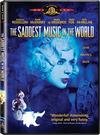On a Gender Bender
So things continue unabated. Or rather, the flux just keeps on fluxing. Everything is so blurry and fuzzy that I feel I must update you in segments.
The show. Rehearsals for The Day Patient began in force this week. I had three days of rehearsal and, though the first two went somewhat mind-clubbingly slowly, yesterday's day rehearsal picked up quite a bit. It's interesting to work on a play when the playwright is local; I met J. Sean Callan last week and he seems like an interesting guy. He's a practicing psychiatrist from Dublin who now lives in the Chicago suburbs (which one? Let's say Lake Park Oak Forest Grove) and he writes plays based on medicine and ethical conflict. Kind of like Chekhov except his plays have something to do with medicine; ie. our play has a number of scenes in a surgical theater. The play is good, I don't think it's necessarily great, but I have plenty to do. I've got four or five scenes in Act 1 before disappearing (we talked about why I disappear yesterday, so that was good in terms of character development). Because the auditions pulled talent that was almost entirely female across the board, all of the doctors, nurses, and administrators in the hospital have been cast as women. The only male character is the husband of the Day Patient. None of us are sure how this is going to go; the director has a concept about gender-neutrality that I'm not sure I can wrap my head around. His idea (doubtless sprung simply from the fact that he has a set number of roles to cast and hardly any men turned up to read) is based on the idea that we're all just doctors/nurses/admins without any nod to gender at all. But, in thinking about it, I wonder if there can ever truly be gender-neutrality. I'd be open to people's debate on this, but I think it's a fact that you can't ignore who people are onstage. Some lines simply come out differently if they are said by a woman than if they are said by a man. And you have to acknowledge who they're being said to as well.
For instance, a woman saying to a man, "You have no idea what you're doing," would be very much one thing tonally speaking. A man saying the same thing to a woman would come out differently, and saying that it points out some kind of social flaw inherent in gender dynamics doesn't mean we can write it off as making some kind of political statement. To take a character written to be a man and change him into a woman is fine to do, if you need to, but there are certain details that have to be addressed and altered. There is a moment in The Day Patient when the patient's husband refers to the doctor doing surgery on his wife and mocks him slightly, saying he can't picture a grown man with manicured fingernails. There is a slight accusational tone of effeminacy here, and the nurse in the scene with the husband doesn't contradict the husband to say that the doctor is actually a woman (in the script, the doctor is a man). In my opinion this bit doesn't need to be changed textually (I happen to think it's more interesting for the nurse to subtextually acknowledge that the husband has assumed the doctor is a man but choose not to contradict him on it) but to have the nurse listen and not acknowledge this discrepancy leaves a hole. The nurse knows the doctor is played by a woman, and gender neutrality doesn't work in this case because gender is in the script. Granted, the scene is still in rehearsal, and this might very well become a part of the scene before we open, but it's a case that made me think a lot about gender neutrality and casting in general.
Racial neutrality is different, I think. There is no reason Hamlet can't be Asian, Gertrude Hispanic, and Ophelia Black. I think that casting would work fine if everyone is the right person for the part. Because race isn't important in Hamlet. It's about family, and jealousy, and madness, and grief, and those things cross all the lines. But to cast something like A Raisin in the Sun with anyone other than African-American actors doesn't make a whole lot of sense. Or to cast M. Butterfly without some measure of racial disparity between the leads would be a Statement. I'm not saying it can't be done, I'm saying to do it would make the casting an Issue. I think a large number of directors today are caught up in equal opportunity and political correctness, and those things can be important, but the lines they cross have to be acknowledged. And gender I think is almost a bigger line to step across than race. You could stage True West with two sisters instead of brothers, but it would be super weird. There would need to be some script alterations, or the women would need to be butcher, or the point of the production would have to be how some things that sound perfectly natural coming from a man sound hyper-aggressive or just plain bizarre coming from a woman. (To be honest I think enough people know that already and there's no need to stage a whole production to prove it).
Thoughts? I want there to be equality in the sense that great scripts be spoken by great actors, and staged by great directors, and these problems may all just resolve themselves if that becomes the case. What do you think? Is gender neutrality ever really possible?


0 Comments:
Post a Comment
<< Home